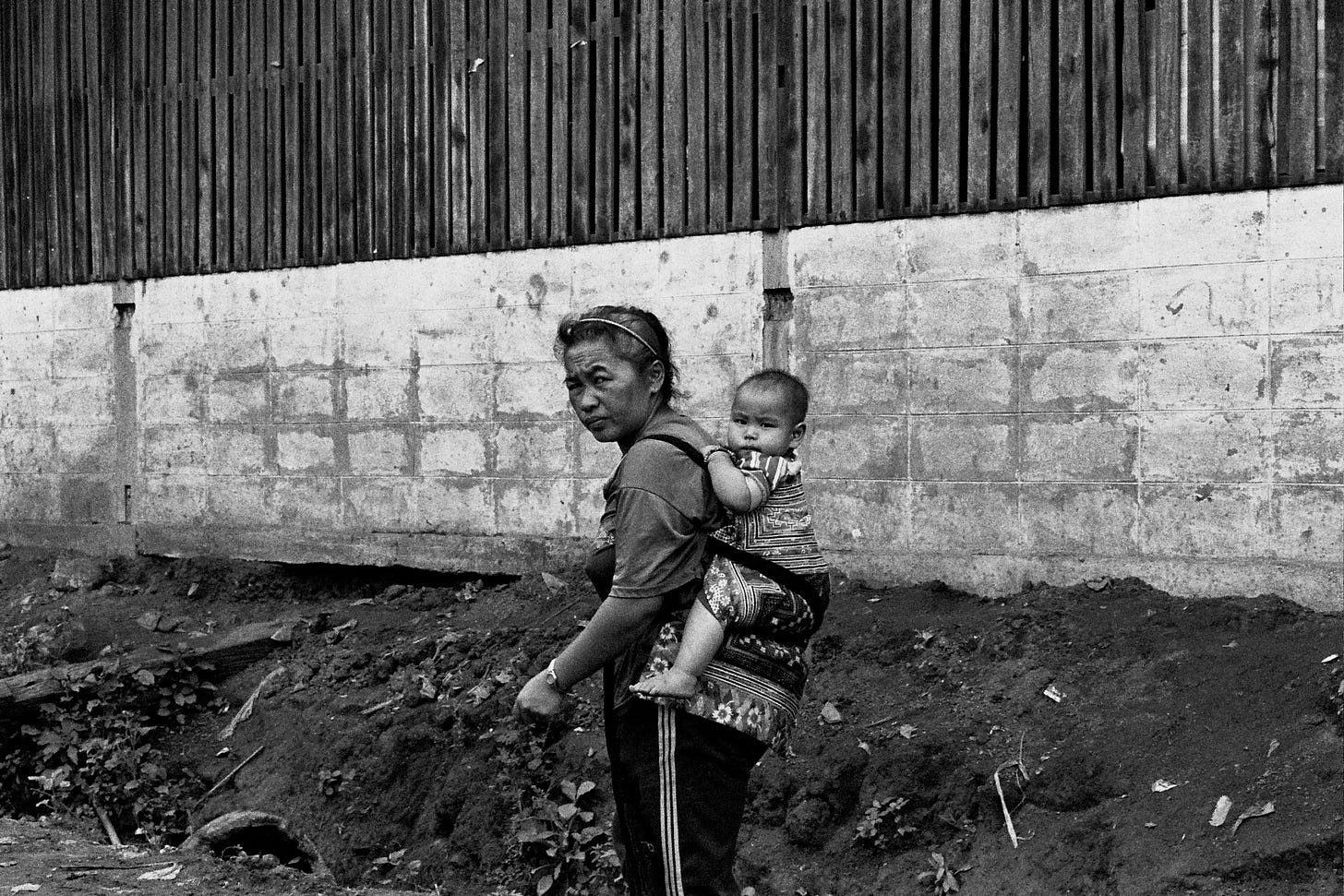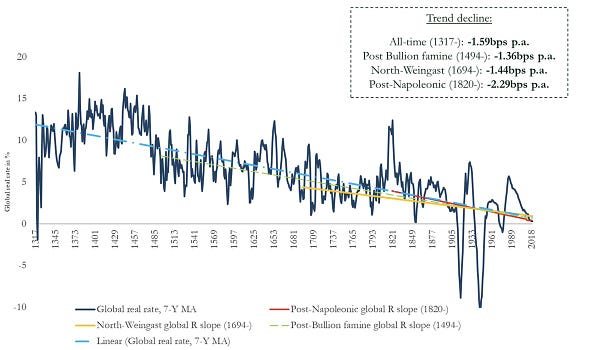To travel is to learn
Reflections on what travelling early taught me. Podcast on climate policy with Chris Stark, CEO Climate Change Committee. Wasabi decline. Patriachy origins. Peleton CEO philosophy. My new show, come!
The piece to read/listen to this week is Chris Stark (CEO Climate Change Committee) on climate policy. I also have a reflection on travelling as learning. If interested in my performance work, I could really do with you buying a ticket to my show. It’s one night only on Fri March 11 at 9pm and it may be the last time I perform it (!) Book here.
To travel is to learn
Links, short hits:
New Peleton CEO management philosophy; Theories on the origin of the patriarchy; Why growing wasabi might be in decline; Kyoto, post COVID; last bucket maker; Profile of VC, Sequoial Mark Ravenhill’s playwriting podcast; Profile of Sue Emmas (Young Vic); Mysteries of the hum; Components of batteries, battery prices; 800 year history of interest rates.
If free do come, March 11.

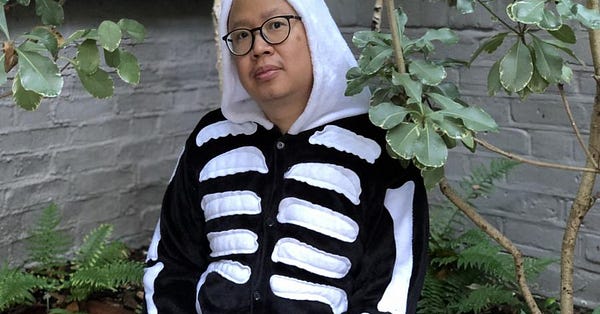
Before travelling, there were stories of travelling, of other countries; my mother’s stories of 1950s Singapore, my father’s stories of the ocean and land trip to come from Malaysia to Britain; my father’s stories of his father in 1930s Cambridge.
“Ben, to travel is to learn. You will only ever learn so much from school.”
You may expect to hear that from parents who were travel agents. A refrain used as a glib marketing aphorism. Yet, it was repeated with such regularity, and feeling, and backed up by stories that it became a belief held as family fact.
I’m uncertain exactly what my father learned on his travel from Malaysia to Cambridge, via France. I know it was a foundational experience and played a part in his settling in the UK and an appreciation of Europe. I know to be able to dance the cha cha cha on such a ship can live on in the memory for decades. I know the miles and miles of driving across the French countryside in an Alpha Romeo cemented a love of driving and cars. Preferably fast. Preferably with fantastic food at every stopping point.
Growing up in London, I never heard the cries of a street food hawker. Yet, I somehow feel I know such a cry because my mother conjured such a scene for me. A dish of noodles costing five cents and the major decision of whether it was worth spending another five cents on ice kachang, a shaved ice dessert, when available. The seemingly low price an ever present memory for what inflation might mean to daily living. The smell of cooking noodles today evoking meals from afar and the history of meals past.
In my father’s Malaysia, the childhood games to master were kite fighting and spinning top battles. Kite strings coated in abrasives and flown to cut lines. Danger lurked as the string was sharp enough to cut flesh. Forty Forty hide and seek and even British Bulldog (banned in some schools) seemed tame and ordinary in comparison.
These tales of an other world. Different in games, rules, culture, food, rituals, in seemingly everything and glimpsed in childhood through family travel became a part of my personal world history. Far removed from suburban outer London life.
Tiny but major stories to explain the inexplicable. Why does Auntie dislike the Japanese? They came in the war and tortured family friends. Oh. Why do we have this pewter jug? Malaysia was one of the world’s largest tin producers (the key metal in pewter). Where does chicken rice come from and why is it so tasty?
This emphasis on travel lead me to be nudged on several great travel trips in my youth, both solo and duos as well as many family travels through Europe and South East Asia.
San Francisco, solo, when I was 14
Borneo, East Malaysia solo, 16
North Thailand, solo, 16
North India, solo 17
Sulawesi, Indonesia, duo 19
Peru, duo 21
Sri Lanka, duo, 26
Japan, duo, 28
I still receive surprised comments when I recount that I travelled by myself to San Francisco when I was 14 and stayed in the middle of the Borneo jungle solo two years later.
People were somewhat surprised then and more surprised now.
There is a tiny piece of myself that is similarly surprised. Today middle class culture in general in many countries does not give early teenagers the type of freedom that would allow them to travel a few thousand miles to experience living in another city.
Perhaps encouraged by media stories, there is sense that the world is unsafe for our children. This we observe from how playgrounds have lost their edges and how street play has disappeared. While it is true the world contains plenty of risk, it is unclear if the world today is more unsafe. The long run data suggests we are safer today from violent crime but problems with reporting means it is difficult to know what has happened historically for many crimes.
My contention would be that children are mostly at risk from domestic abuse and that general safety for a 14 year old child today is better, or at least, no worse than in the last four decades.
Parents will always fear the uncertainty, and will always wish to protect their children. Against these two compulsions, my parents gave me a valuable gift in letting me and encouraging me to travel to learn.
I learned significant insights in living in cultures different to how I was growing up and living. Deep observations and a range of human rituals and behaviours. The force of personal experience trumps books, films and conversations. We speak of the power of lived experience because it is one of our most powerful human forces.
Over and above these hard to imagine experiences such as living in the jungle with no running water (Indonesian rain forest), or why you would not use soap in a bath (Japan, where baths are for soaking in not washing), or the all day drinking party that is Vappu (Finland) were the small every day learnings on how to live a good life.
What to choose for lunch (why so many cultures are particular about breakfast), how to budget a day, how to ask for information, how to decide on trusting people, how to change your plans, how to rely on yourself, how to have conversations with strangers, how to record your thoughts, how to figure out what's important or what’s not.
Experiences live on in the memory, often more than many tangible objects do. I recall riding the Cal train from Palo Alto into San Franscisco - glimpsing the life of the working commuter - deciding on lunch, walking up and down these hills, and then cable cars thus understanding their practical attraction, past the colourful painted houses and wandering around Fisherman’s Wharf. Declining to pay for tacky museums and preferring Chinatown and the park. These were smaller everyday experiences in the arc of life, but chosen and balanced by myself with only myself to decide and to blame for what worked or failed.
Mostly, today much of those learnings for the developed middle class start in university and then the early years away from parents. I started university at 17. School had prepared me for academic learning and had nurtured self directed intellectual curiosity.
But travel, and in particular my solo adventures, had prepared me for life. And to make the most of it.
Every child and very family is different. My own has distinct challenges. I hope I can swallow my fear enough to allow own my own child the chance to travel to learn.
There is an incredible amount of analysis and policy thinking in the UK’s Climate Change Committee (CCC) reports which should be required reading if you are interested or involved in anything UK climate. Chris is CEO of the CCC and he brings to life many of the important insights of current policy thinking.

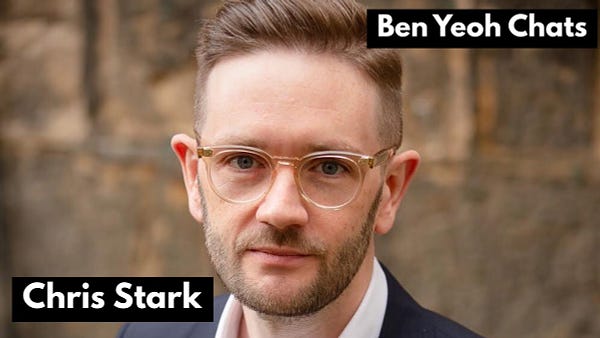
Everything was insightful but his comments on why a carbon tax might be over rated I found very provoking. Economic models suggest pricing pollution or “externalities” are the way to go in terms of directing investment, consumer/business behaviour etc. But, the politics are not in favour. The median voter, the public on average dislike these taxes or disbelieve their effectiveness. Chris suggests and the CCC work backs this up that industry specific policy and strategy could be more achievable and effective. For instance - imagine - an electric vehicle policy, electric charging infrastructure, rising clean air standards and (maybe) an eventual move to road pricing - these type of policies might achieve majority electric land transportation without carbon tax especially considering much travel might be “inelastic” as in, a tax may not change travel behaviour that much because people have limited choice on travel obligations. An underlying carbon price is still helpful but it may not be the most important piece of the puzzle nor the rate limiting step.
Chris was careful to caveat how much of the language we use is potentially unhelpful. “Behaviour Change” has overtones that we are “behaving badly” which is a poor message. The phrase also suggests we might need dramatic changes (although personally I think there might be forms of culture change coming) which, for instance, if everyone drove electric cars or cycled would be in one view a dramatic change, but on the other hand if it means we are still driving cars just electric over fossil fuel that’s not what many might consider a “behaviour change”.
The change is intertwined with technology.
Chris does judge the question of “fairness” as perhaps the most important policy question intertwined here. It’s unclear but the current fact that the challenges fall unequally over countries and people is potentially of greater importance to resolve than the claims of historic legacy emissions. But of course both are heavily debated.
Much more in the podcast or in the transcript.
And podcast summary: Chris Stark is the Chief Executive of the UK’s Climate Change Committee. The committee is an independent statutory body which advises the UK and developed governments on emissions targets and preparing for and adapting to the impacts of climate change. I think he is one of the most important and thoughtful thinkers on climate change policy today.
We discuss what is most misunderstood about climate policy, the likely co-benefits and the scale of investments needed especially in the UK in replacing “old inefficient stock”.
What positives/negatives came out of COP26 (recent international climate conference) and what to hope for in COP27 and beyond. Why COP26 might have been considered a corporate COP as a criticism but why that might not be bad.
Why sector specific strategies might be a better plan than a focus on carbon tax.
Why adaptation or resilience has been a bit of a “Cinderella” in climate discussions. What the science suggests is already baked into 2050 scenarios and so what we should be thinking about adaptation as well as mitigation.
The complexities and challenges around “behaviour change” and why it’s not a great term. Why we might not need a complete culture change (in the sense of changing lifestyles) but the intersection of behaviour and technology. (For instance, still driving cars but electric cars on a decarbonised grid.)
Why a sense of fairness is one the most important climate policy (political economy) considerations and what we should think about in terms of climate impacts falling unequally across countries and peoples.
What role finance has to play. We discuss:
Climate assemblies (and why Chris changed his view on them)
Divest/engagement strategies
Carbon offsets
Carbon taxes
The role of nuclear
Land use
Road charging
And we end with advice Chris has for people. Link to transcript and video.
Peleton as a stock (and on certain financial metrics) have had a very tough 12 months culminating in a CEO change. The new CEO Barry McCarthy does point to very high Net Promoter Scores (a somewhat contested measure of customer satisfaction) of 88+ as evidence of what VCs and start-up operators call “product market fit” (when [target] customers want/buy your product and [ideally] tell others). This is his management philosophy.
I am undecided as to if this is mere corporate waffle or has some intriguing and sound management and culture behind it, but it is intriguing enough as a basis for a turn around strategy that I note it here and let’s see how he does.
Be stubborn on vision, flexible on details
Fast is as slow as we go
Intuition drives testing. Data drives decision making
Your comfort zone is your own worst enemy
Talent density is foundational
Stress context not control, freedom and responsibility
Understand in order to be understood
Get Real
Think from first principles
Put first things first
A little more in the link here or below.


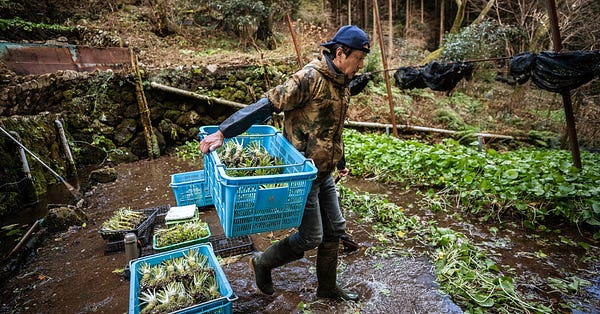
Wasabi growers are not super keen in letting newcomers into their association, there are environmental challenges as well. It reminds me of when I saw the last hand made bucket maker of Kyoto.
Also, Kyoto post-COVID.


Here is a summary of theories of the patriarchy.


Profile on the changing nature of VC.


Mark Ravenhill on playwriting, podcast.

A profile on Sue Emmas (Young Vic, theatre), who I have found consistently wonderful and helped me going back over 20 years ago.


On how some sounds and probably created by the body in some fashion. And the mysteries of the hum.


The compelxity of the components of a battery. How some of it is very carbon intense and much of it relies on the know-how of making pure coke (carbon) as a feed stock in a plant in Humber.


And battery prices:

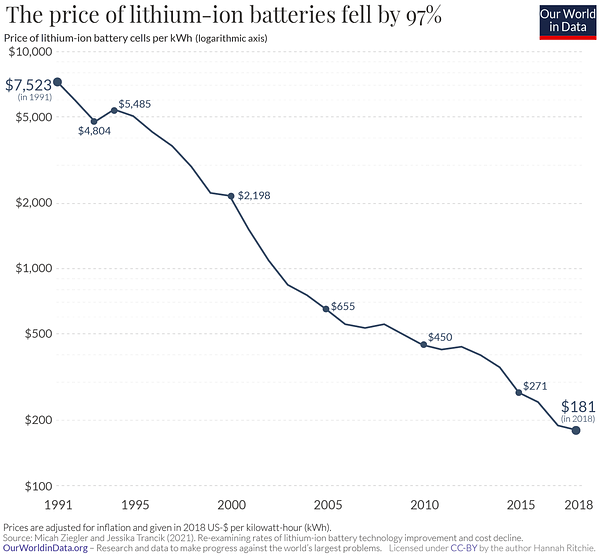
And long term interest rates. Very good if you are economics geek.


